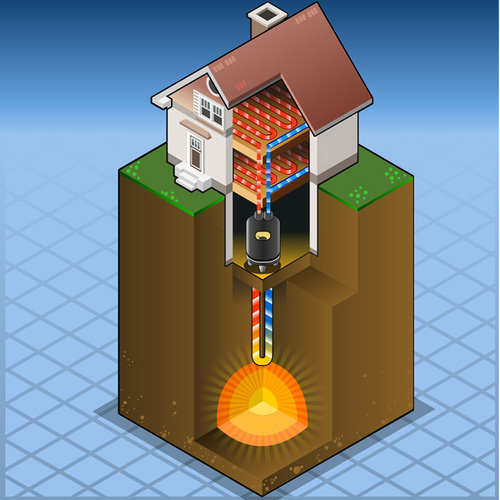CALL TODAY 1-800-441-6281
CALL TODAY 1-800-441-6281

Does the State Regulate Geothermal Wells?
- Tags:
- geothermal wells

As homeowners across New England look for greener and more energy efficient ways to heat their homes, geothermal exchange systems are becoming more popular. These systems rely on the earth’s natural, relatively constant thermal temperature to heat, cool and provide hot water for a home or business. It delivers year-round comfort with minimal environmental impact and uses little to no fossil fuels. Geothermal systems also reduce our dependence on foreign oil and lower our region’s greenhouse gas emissions.
Geothermal exchange systems are found in a variety of buildings, from newly constructed homes to retrofitted office buildings.
Buildings of various age or location can be good candidates for a geothermal system. Geothermal installation can also qualify you for a green energy tax credit.Skillings & Sons has technicians on hand that can help you determine if your home, office, school or business is geothermal ready. Our staff can also tell you what state regulations and guidelines will need to be followed during installation.
How geothermal systems work
A geothermal system consists of three parts: a heat pump, a ground heat exchanger and the delivery system. The ground heat exchanger is a series of pipes buried in the ground that transfers the warmth from the earth into the home. The heat pump connects the ground portion to the inside of the building and the delivery system is the ductwork or radiator that transfers the warm air throughout the home.
In the winter, heat is absorbed from the earth and transferred into the building by way of water or a water solution. The heat pump exchanger inside the building raises the temperature of the heat for distribution throughout the home. During the summer, the process is reversed. Heat is absorbed from the building and transferred back into the earth.
Types of geothermal systems
Geothermal well systems come in two types: open-loop, also called standing column, and closed vertical loop.
A standing column system is used in about 80 percent of the geothermal wells in the Northeast. Deep holes are drilled into the aquifer and pipes are dropped into the holes until it meets the water. The system takes water from an aquifer and transfer heat from the ground into the home.
In a closed vertical loop system, a water solution circulates through plastic pipes buried underground, absorbing heat from the earth. The heat pump exchanger takes that warmth and brings it into the home heating system.
State and federal regulations
Under federal law, the Environmental Protection Agency requires states to inventory different classes of geothermal wells, including closed vertical loop and standing column wells. Geothermal wells for single-family homes and wells for business and industrial use have different reporting standards.
Wells for geothermal systems must meet siting and construction standards established by the New Hampshire Water Well Board. The state has also established recording and reporting requirements for certain geothermal projects where multiple wells are installed on one site. In Massachusetts, the Department of Environmental Protection regulates the wells, which must be installed by certified well drillers. Homeowners are responsible for ensuring state regulations are followed and that the well is registered with the state.
You can learn more about reporting well construction by calling Skillings & Sons.
Skillings & Sons expertise
Our first residential geothermal exchange system was installed in 1986. Since then we have installed close to 100 systems for residential use ranging from a 1,200-square-foot home to a 10,000-square-foot historic home with eight exchange units. We work closely with HVAC contractors, designers and engineers of geothermal exchange systems to ensure the best product for our customers.
Vertical loop wells should be installed by an International Ground Source Heat Pump Association certified technician or a professional who follows procedures established by IGSHPA. At Skillings & Sons, Inc., our technicians are IGSHPA certified.

